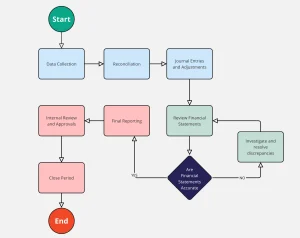We live in a litigious society, with stories of shakedowns, data leaks, and professional negligence abound. While it may seem impossible to prevent a civil lawsuit, it is possible to take precautions to protect your assets from unjustified creditor claims.
It is crucial to set up protections well in advance of a potential lawsuit. Laws prohibit fraudulent transfers and last-minute actions to shield assets, so it pays to be prepared.
Create a Trust
Anyone can be sued, but those with substantial wealth make an especially tempting target for plaintiffs seeking to right perceived wrongs. As such, a financial advisor can help you create a plan to protect your assets from lawsuits.
Creating an irrevocable intervivos trust or a family limited partnership (FLP) can shield assets from creditors. However, the trustee must be an independent individual or a corporation located in the state where the trust is created. Also, the trustee must allow distributions only at your direction.
Moreover, creditors may argue that the trust is a sham or that you retained de facto control of the assets. Therefore, a less draconian strategy is needed for protecting assets both during your lifetime and after you pass away. The Anderson Advisors team can help you evaluate your risks and implement wealth preservation strategies to ensure your assets remain protected.
Transfer Your Cash to Protected Accounts
In many cases, cash is the most vulnerable asset to lawsuits and creditors. Various investment accounts like individual retirement accounts, annuities, and life insurance carry some form of protection due to federal and state laws. But oftentimes, those policies have limitations that may leave you exposed.
Professionals and business owners who face malpractice suits, personal injury claims, or costly divorce settlements can find that assets they worked so hard to build up are suddenly lost to others. This is why it’s important to take defensive measures early on, long before a threat arises.
For example, it’s best to avoid flashy consumption that can attract attention from trial lawyers and cause them to take on cases that they might otherwise pass on. Additionally, time is critical. Laws in most states prohibit fraudulent transfers and last-minute actions to hide assets from creditors, so you must start your protection strategy well before the threat of litigation arises.
Protect Your Home with the Homestead Exemption
A homestead exemption can protect some of the value in your primary residence from creditors and other plaintiffs. However, this law is not available in all states and may have statutory limits. A domestic asset protection trust (DAPT) is another option. It allows you to transfer a property into a trust that is managed by an independent trustee. The trustee is not a party to the legal action and can only distribute funds at their discretion.
Having a solid estate and asset protection plan is critical for those in high-risk professions, small business owners, or anyone looking to safeguard their assets from potential lawsuits. An attorney can help you create a strategy that meets your specific needs. This includes setting up an irrevocable trust, which is the most secure option.
Create a Will
We live in a litigious society. You may be sued for many reasons — a car accident, the falling of a decaying tree onto your neighbor’s property or an accusation that you committed a crime.
It’s important to set up legal entities and trusts to protect your assets from creditors. An estate planning attorney can help you choose the best strategies for your situation.
A good estate plan should provide protection for your assets from lawsuits and other circumstances such as bankruptcy, divorce and civil litigation. This can ensure that your loved ones receive full control of and access to their inheritances without the risk of losing them to a creditor or other unforeseen circumstance. IRA legacy trusts and other wealth preservation trusts are examples of such strategies.
Set Up an Umbrella Insurance Policy
Umbrella insurance is designed to provide additional liability coverage above the limits of your auto and homeowners policies. Generally, it should cover the value of all your taxable assets outside of retirement and college savings accounts (including those in individual brokerage or investment accounts), plus any homes beyond your primary residence.
The litigious society in which we live has spawned many horror stories of multimillion-dollar judgments that individuals had to pay after being sued for such things as professional negligence, shakedowns and even an idle social media comment. That’s why it makes sense for everyone to consider adding an umbrella policy to their financial plan.
It’s especially important for people who are at risk of excess liability to do so, such as those who own rental properties, employ household staff or have large trampolines. An estate planning lawyer can help you determine whether or not an umbrella policy is appropriate for your situation.



